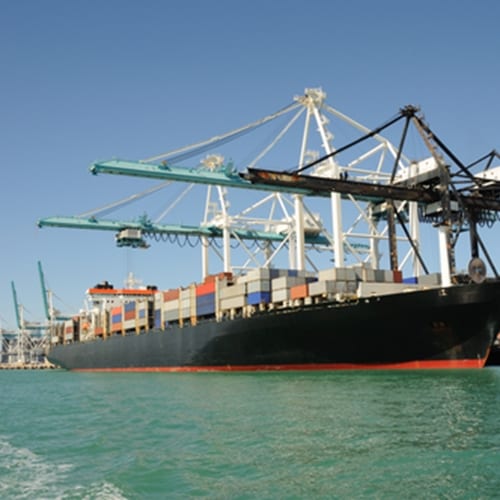The nearly 100-year-old Jones Act that affects thousands of marine contractors could be in for some significant changes this year. But those that may be forthcoming won't be for awhile longer, after government officials decided to extend the comment period so individuals have plenty of time to give their say on the matter.
In mid-January, U.S. Customs and Border Protection put forward nearly three dozen recommendations for how the Jones Act could be updated to make it more palatable for U.S. employers in the maritime industry. Several of these rules hadn't been addressed for over 40 years. Initially, CBP gave the public until Feb. 17 to air their opinions, but the comment period has since been lengthened by two months. It now runs through April 18, as reported by multiple industry news organizations, including Splash 24/7.
"The comment period now runs through April 18, two months longer than the original deadline."
Reactions to the announcement were swift, many of which were in favor of CBP inviting more feedback given the magnitude of the changes that could be forthcoming.
The International Marine Contractors Association applauded CBP's revisal.
"The additional 60 days will enable us to undertake very necessary research into the likely economic and technical impact of the proposed revocations," explained Allen Leatt, IMCA chief executive. "We understand the drive to protect U.S. tonnage given the difficulties in the PSV market today, but the deep-water construction market represents a very different sector with very different vessels and technologies."
What is CBP proposing?
Just as the Jones Act itself is rather sweeping, so too are the proposed revisions. For example, one of the amendments would affect companies that deal with equipment manufacturing and distribution, chiefly in the offshore marine services and gas extraction industries. Currently, only U.S.-based vessels can carry shipments, but if CBP's recommendations are implemented, vessels built overseas would fall under the Jones Act's auspices. All told, nearly 30 interpretive rulings of the existing Jones Act would be potentially affected.
While proponents of the changes believe they will help stimulate job creation, the IMCA says further research is needed before any conclusions can be reached.
"We understand the drive to protect US tonnage given the difficulties in the PSV market today, but the deep-water construction market represents a very different sector with very different vessels and technologies," added Leatt. "It is a truly international market, as no single domestic market can support the heavy investments of these assets."
He added that IMCA will give its opinion regarding the wisdom of the proposed revisions before the April 18 deadline.
AMP gives the go-ahead
Meanwhile, the American Maritime Partnership is all in favor of CBP's recommendations, which the trade group says will create thousands of jobs, further shoring up the U.S. economy.
"Changes have the support of several members of Congress."
"The men and women of the American maritime industry commend the U.S. Customs and Border Protection's efforts to rightfully restore over 3,200 American jobs to the American economy and close loopholes that gave preference to foreign workers and foreign shipbuilding," said Tom Allegretti, AMP chair. "We applaud President Trump's commitment to 'buy American and hire American,' and the correct and lawful interpretation of the Jones Act will ensure the preservation of American jobs and maintenance of the U.S. shipyard industrial base, both of which are critical to our economic security and national security."
Several lawmakers have also expressed their approval, among them Rep. Garrett Graves of South Louisiana, Rep. Duncan Hunter of California, who serves as chair of the House Subcommittee on Coast Guard and Maritime Transportation, as well as Louisiana Sen. John Kennedy.
More formally known as the Merchant Marine Act of 1920, the Jones Act primarily serves as legislation that protects employees within the marine industry, or as the law itself says, "to provide for the promotion and maintenance of the American merchant marine."

